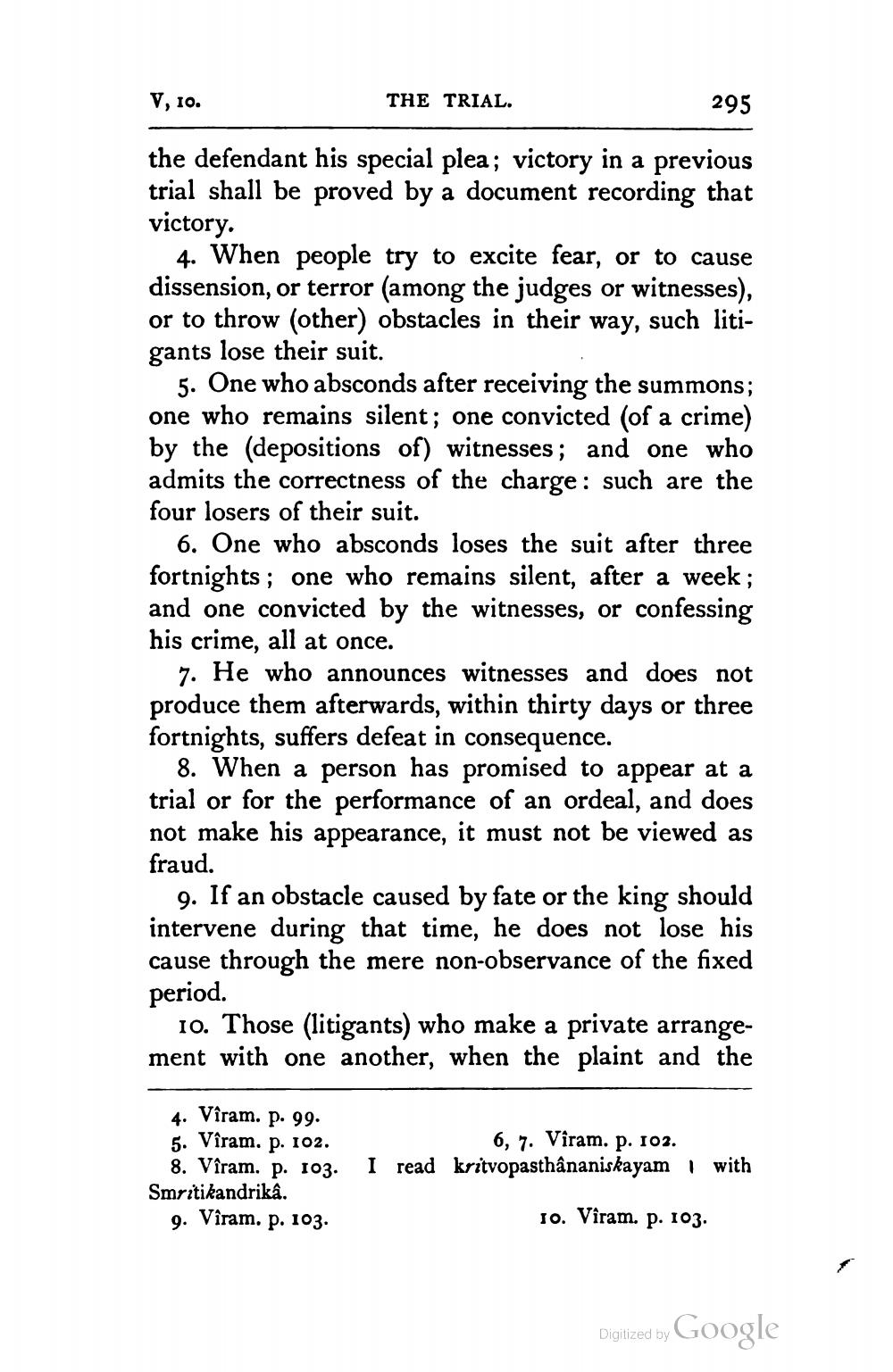________________
V, 10. THE TRIAL.
295 the defendant his special plea; victory in a previous trial shall be proved by a document recording that victory.
4. When people try to excite fear, or to cause dissension, or terror (among the judges or witnesses), or to throw (other) obstacles in their way, such litigants lose their suit.
5. One who absconds after receiving the summons; one who remains silent; one convicted (of a crime) by the (depositions of) witnesses; and one who admits the correctness of the charge : such are the four losers of their suit.
6. One who absconds loses the suit after three fortnights; one who remains silent, after a week; and one convicted by the witnesses, or confessing his crime, all at once.
7. He who announces witnesses and does not produce them afterwards, within thirty days or three fortnights, suffers defeat in consequence.
8. When a person has promised to appear at a trial or for the performance of an ordeal, and does not make his appearance, it must not be viewed as fraud.
9. If an obstacle caused by fate or the king should intervene during that time, he does not lose his cause through the mere non-observance of the fixed period.
10. Those (litigants) who make a private arrangement with one another, when the plaint and the
4. Vîram. P. 99. 5. Vîram. p. 102.
8. Vîram. p. 103. Smritikandrika.
9. Viram. p. 103.
6, 7. Viram. p. 102. I read kritvopasthananiskayam
1 with
10. Vîram. p. 103.
Digitized by Google




